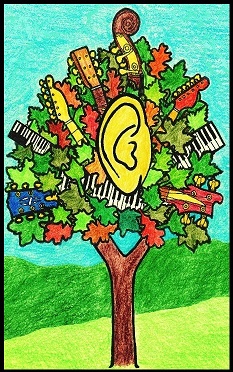 I’ve asked several music school owners, “What makes your school different from the others?” The answer is almost always the same. “Our competitive advantage is our excellent teaching staff. Our teachers make the difference.” And they’re right. The quality of a music school is determined almost entirely by the quality of its teachers. Noster populus facit discrepantiam!
I’ve asked several music school owners, “What makes your school different from the others?” The answer is almost always the same. “Our competitive advantage is our excellent teaching staff. Our teachers make the difference.” And they’re right. The quality of a music school is determined almost entirely by the quality of its teachers. Noster populus facit discrepantiam!
In order to understand music teachers, you need to see things from their perspective. Teachers at music schools are under pressure from bosses, parents, and even other teachers, to conform to traditional biases regarding what constitutes “legitimate” music education.
One of the main problems is that non-classical teachers have inherited the classical school’s narrow fixation with reading staff notation. Most teachers still feel that the measure of your success as a student, and of their success as teachers, is your ability to read staff. It’s the ultimate expression of professionalism and respectability. It’s the ultimate positive reflection upon their school. If the proverbial genie in the lamp ever gave them just one wish …
Yet for some reason, even with all of the tools at our disposal, music teachers are still almost never satisfied with their students’ reading skills. I’ve had hours of conversations with private music teachers, on and off the job, at lunch meetings, dinners and conferences. Their students can’t read, they’re bored with reading, they don’t pay attention or practice their assignments, another one just quit.
I’ve known many private music teachers who play in bands and hire out for recording sessions. Many of the musicians I’ve worked with over the years are the most easy-going, reasonable people you can imagine – until they sit down with their students. Then they switch personalities. They become obsessively pedantic, by-the-book perfectionists – and that’s putting it nicely.
By pushing reading, teachers of modern music push the tacit assumption that reading staff is going to be an important part of their students’ day-to-day lives as non-classical musicians. I’m surprised when musicians I’ve worked with in bands lay this trip on their students.
All of the teachers I know, who are also gigging rock musicians, learn their music by ear. Their bands work with chord charts and “auto-arrange.” No one in their bands are reading staff at their rehearsals or their gigs. Unless they’re in college, they don’t spend hours every day squinting over pages of crotchets and quavers.
Instead, they spend their practice time memorizing music, playing with recordings, and running scales so they won’t blow their solos. So why they fixate on staff notation as the one sure path to whatever unnamed destination their students are headed for is a mystery, except as a pointless assertion of musical one-upmanship. It’s another bias, inherited from the “classical school,” which makes no sense in the modern world.
Of course, one reason teachers push reading is so they can say, “Look boss, I’m doing my job. My students are all reading.” Too many teachers teach like it’s their job to prepare their students for sight-reading competition. You can spend your entire life circling on the reading–method merry-go-round if you don’t take charge of your own musical direction.
School owners like for all of their students to learn from the same reading-based method books, because it gives the appearance that the school has something resembling a curriculum. It also makes it easier to assign substitute teachers when everyone is in the same books.
Teachers play up the angle that method books benefit the student by providing structure to their lessons. But the truth is, just as often, it’s the teacher who needs the structure. Many music teachers simply can’t teach outside of the context of books. I’ve seen teachers throw up their hands in disgust because they don’t know what to do with a non-reading student who plays by ear. As far as they’re concerned, that student knows absolutely nothing, and their answer is to go back to Book 1, page 1.
Some teachers tell their beginning students up front that the first six months of lessons are boring. There’s no mention of what’s supposed to happen after that. Guitar teachers often say the first few months are confusing because students have to learn staff notation and guitar tablature at the same time, as if it’s just one more unavoidable aspect of the human condition. There’s no reason for confusion when you take a well-ordered approach to integrating staff notation and tab.
The sad fact is many working music teachers just aren’t that good at the basics of teaching. Just because they got through the books they’re teaching, or because they can play, or because they have a music degree, doesn’t make them effective instructors.
A good teacher needs the ability to accurately introspect about their own mental processes with regard to playing music. Teachers who can’t break down their own mental processes probably don’t understand their students’ mental processes either.
© 2019, 2020 Greg Varhaug